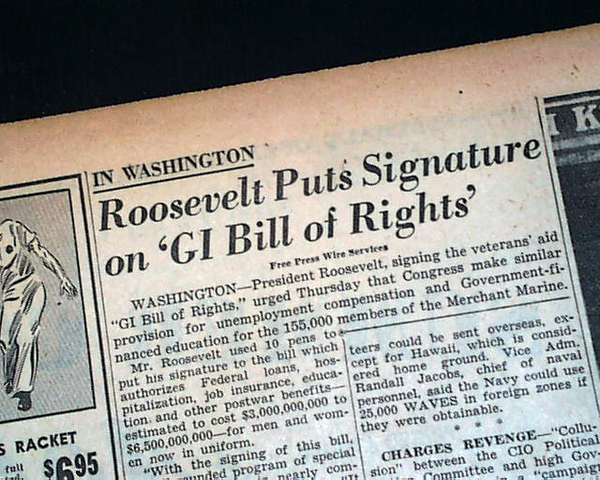
On June 22, 1944, U.S. President Franklin D. Roosevelt signed
the G.I. Bill, an unprecedented act of legislation designed to
compensate returning members of the armed services—known
as G.I.s—for their efforts in World War II.
As the last of its sweeping New Deal reforms, Roosevelt’s
administration created the G.I. Bill (officially the Servicemen’s Readjustment Act of 1944) hoping to avoid a relapse into the
Great Depression after the war ended.



Place your comment